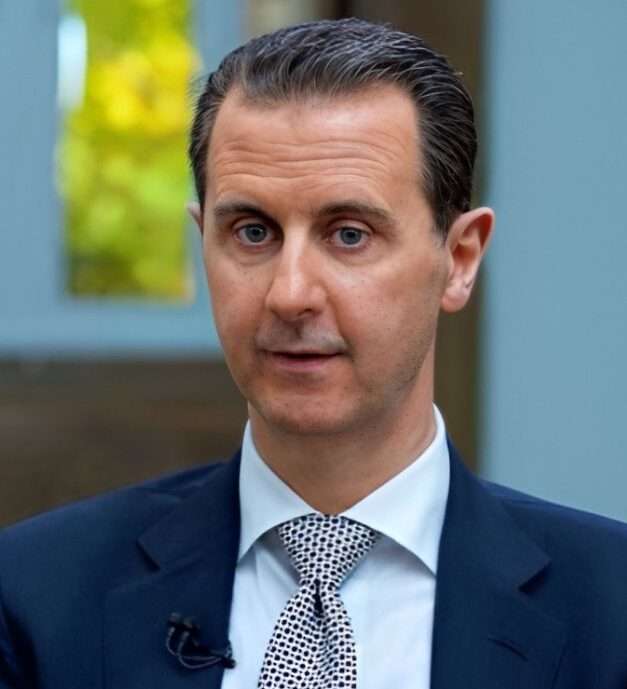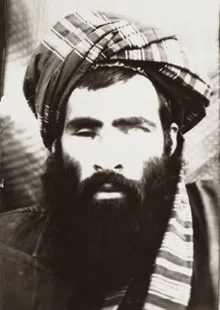We had barely overcome the OBL scandal when the news of Mullah Omar’s demise in Karachi has surfaced. That Mullah Omar is hopefully dead is good riddance but his supposed expiry in a Karachi hospital is once again putting us in a spot. That said, no evidence, circumstantial or otherwise has been provided by the Afghan intelligence agency which has aired the Karachi scenario while the Afghan Taliban Shura has categorically denied the Karachi portion while admitting their supreme leader is no more. In the current ambiance this story, whether true or false is unlikely to make much of an impact.
The Gurdaspur firing incident in the Indian Punjab is far more serious. The Indian claim about the terrorists having come from across their western border is so far based on the GPS readings which were reportedly recovered from the dead attackers. It is possible that banned religious terror groups who are now being actively attacked and pursued by the Pakistani defence forces could well have carried out this attack in a bid to provoke India into a rash military adventure against Pakistan which would immediately shift the focus of the Pakistani military from them to India. Without concrete evidence, however, such an assertion would remain just that – an assertion.
It is also very likely, as the Indian retired Lt. General Brar, the principal architect of Operation Blue Star, has opined that ‘the Indian Punjab government is to blame for taking a soft stand against the Khalistani terror groups keeping in view their vote bank.’i Anil Kamboj, a senior Fellow at the Institute for Defence Studies and Analyses New Delhi states: ‘the attack could be an attempt to revive militancy in Punjab. By unleashing a terror attack in Gurdaspur, the Pak-based militants have tried to give message to pro-Khalistan sympathizers and hardliners that a revival was possible.’ii And according to an Indian TV report ‘a police officer has told the Associated Press that the attackers are believed to have come from Indian-administered Kashmir.’iii And finally, a News Flash reports: ‘A day after India warned of a “a befitting reply” to terror attacks like this week’s strike in Gurdaspur in Punjab, sources say there is “no credible evidence” that the Pakistan government was aware of the plot that ended with seven people killed in a small town just 18 km from the border’.iv After the initial anti-Pakistan media blitz by the Indian TV and the BJP led Indian government, a degree of sanity appears to have surfaced across the border.
Both India and Pakistan accuse the intelligence agencies of supporting insurgents in each other’s soil, protesting loudly in domestic and international forums with little or no avail. The dictum ‘truth is stranger than fiction’ is actually far more applicable in the murky fields of intelligence and counterintelligence. A heart to heart talk by the two spy networks with full support of their respective governments may convince both about the futility of trying to destabilise each other through such Cold and Proxy War strategies. India and Pakistan are battling a common enemy and a frank and no-holds barred meetings between the two spy agencies is the only way out.
On the subject of the current Afghan peace talks, while it is a major step forward towards finding some solution to the Afghanistan imbroglio, both the pessimists and the optimists can convincingly and successfully argue their points of view. I am in the optimist group and with Mullah Omar and leaders of his generation mostly deceased or sidelined, the new generation of Taliban leadership could well want to enjoy the benefits of the over three decades of constant war, especially now where they are in a far better bargaining position than they were in the first decade of the 21st century. The danger lies if they convince themselves that they are now poised to get control of the full Afghan cake so why settle for a piece. Saner elements even among them would know that a repeat of 1995 looks remote and if the Taliban reject the peace offer the fighting could continue forever – hence my bit of optimism.
The birth and growth of the ISIS/ISIL, (Daish in Arabic) is a result of sheer incompetence, corruption and nepotism by the ruling elites in nearly all Muslim countries that has frustrated the Muslim youth. The fact that western powers tend to support such corrupt oligarchies in pursuance of their own narrow state interests has further fuelled their anger. For the Daish leadership, however, it is plainly a movement to grab naked power.

A majority of Pakistanis believe that ISIS is the creation of the West led by USA and is militarily and financially being supported by them. Perhaps a more nuanced conclusion would be that ISIS was another unintended consequence of the 2003 US military misadventure in Iraq, in a manner similar to their support of the Afghan Mujahideen in Afghanistan in the 1980s that led to the subsequent formation of al Qaeda and the Taliban. The totally unwarranted 2003 invasion of Iraq brought the Shia majority into power and the Shia revenge on the Sunni minority for decades of persecution under the Saddam rule led to the Sunni rebellion with the covert support of USA and the West. The Sunni rebels initially morphed into an affiliate of al Qaeda. Subsequent raising, arming and support of the west for the Free Syrian Army which had revolted against Bashar al Asad, the Syrian strongman, laid the groundwork for the hardened religious extremists to infiltrate the movement laying the groundwork for the emergence of ISIS. Paradoxically both ISIS and the Free Syrian Army are engaged in fierce battles against the Syrian armed forces under Bashar al Asad while simultaneously fighting each other.
In this triumvirate the introduction of the Iraqi Kurds and Turkey has further confused an already very complex situation. ISIS is a common enemy of both the Iraqi Kurds and Turkey. While the Iraqi Kurds are engaged in a do or die battle with the ISIS with overt US support, Turkey too as a NATO member has declared war on the ISIS. Turkey is simultaneously engaged in a sub-conventional war with their Kurdish population who are in league with the Iraqi Kurds in a bid to establish an independent Kurdish nation comprising Kurdish majority areas in Iraq, Syria and Turkey. In such a perplexing scenario, the lines between friends and foes tend to get blurred but as things stand today, ISIS has emerged as the biggest threat to US interest in the region.
The US air power can decimate ISIS in a week if they so desire and their unwillingness to do so is a clear pointer that ISIS is their baby – this is the counter argument of those who believe ISIS is a creation of USA. Over ten years of US air and land power in Afghanistan failed to eliminate the Taliban and for anyone to think that air power alone, or in combination with other land and naval forces can easily eliminate such movements, is to misread history.
President Obama appears to have learned his lessons from history and only reluctantly entered the Libyan fiasco where Italy and France were in the forefront, made good of his electoral promise of withdrawing US combat forces from Iraq and is on track of doing so in Afghanistan as well. So far he has staved off the Republican war mongers from a military invasion of Syria and Iran.
Defeating ISIS through brute force is possible but it will be costly and a very long drawn affair. If the military force is complemented by redressing the underlying causes that attract even educated Muslim youth to the almost maniacal ISIS ideology the Daesh threat can be neutralized with relative ease and on a more permanent basis.
End Notes
ihttp://www.ibnlive.com/news/india/army-officer-who-headed-operation-bluestar-blames-punjab-government-pakistan-for-gurdaspur-terror-attack-1026119.html accessed on July 31, 2015
iihttp://www.firstpost.com/india/the-four-important-questions-that-arise-from-gurdaspur-terror-attack-2367294.html accessed on July 31 2015
iiihttp://qz.com/464332/a-terror-attack-is-currently-unfolding-in-punjab/ accessed on August 1, 2015
ivhttp://www.ndtv.com/india-news/pakistan-government-wasnt-aware-of-gurdaspur-terror-plot-indias-stand-1202568 accessed on August 1 2015.




